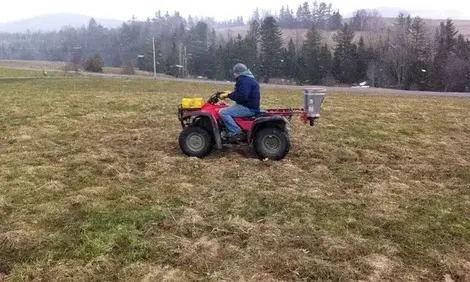



Why a No-deal Brexit is Catastrophic for British Farming
UK - The NFU has said everything must to be done to avoid a no-deal Brexit, and the catastrophic impact this could have on British farming.NFU says, "We're working on behalf of members to ensure the best Brexit for British farm businesses, leaving without a deal could have significant impacts on British farm businesses."
The links below show how each sector could be affected, what can be done for preparation and what the NFU is asking government to do in the event the UK does leave the EU without a deal:
Why would a no deal be catastrophic for British farming?
Trade embargo: EU legislation could effectively result in a trade embargo on the export of UK animal based products such as meat, eggs and dairy to the EU. These products can only be imported by the EU from approved countries, and it could take months for such status to be granted to the UK.
The lamb industry would be particularly impacted. In 2017, 31 percent of domestic sheep meat production, the equivalent of 4.5million sheep, was exported and 94 percent was destined for the EU.
Increased imports: The UK government could avoid charging tariffs on imports to prevent a rise in food prices, which could have a negative impact on domestic food production and consumer choice, as well as an increase in imports of products produced to lower standards.
Export tariffs: Export tariffs could be imposed on the 60 percent of UK food, feed and drink that go to the EU, increasing export tariffs to an average of 27 percent on chicken, 46 percent on lamb, 65 percent on beef, and range from €172 to €1,494 per tonne in pork.
A cut in access to farm inputs: It is likely that trade barriers will go up between the UK and EU which could limit the availability of many farm inputs such as veterinary medicines, fertilisers, plant protection products, machinery parts and animal feed. Furthermore, as the EU will no longer recognise UK organic certification bodies, exports of organic products to the EU would be severely curtailed.
Less workers: The sudden end of labour mobility from the EU would cause serious problems when it comes to securing the necessary labour to harvest and process UK produce, as well as in related roles such as carrying out veterinary inspections.
Organic exports cut: As the EU will no longer recognise UK organic certification bodies, exports of organic products to the EU would be severely curtailed.
TheCattleSite News Desk


